|
News coming to hand is that Ms. Thora Dumbell, 98, passed away today. The ABVMOTT Community is saddened by the news of the passing of one of our cultural icons. To honour this amazing and beautiful soul who passed earlier today, I am re-posting a tribute of Thora Dumbell written by one of our members Michael Baiz
____________________________________________________________ Aunty Thora, as she is fondly called by past students of her ballet school, is an icon in the history of dance in Trinidad and Tobago. Thora Dumbell was born on January 12th , 1924 and started her dance career at age 3. By age eight she had already appeared in two movies.For many years she ran her school out of the Chinese Association in St. Ann's. Her long and successful career was not limited to dance, she was also a well respected judge in Kiddies' Carnival and Easter Bonnet Parades. She did many charity shows and was a recipient of the Humming Bird Medal (Gold) in 1978 for Community Service. Thora Dumbell is the daughter of the late Louis Gillman Thomas who was an astute businessman in his time. He founded Thomas & Sons in 1949 which was a variety type store located in downtown Port of Spain on Charlotte Street. The company has since relocated to another part of the city and is owned and operated by his grandson, Allan Thomas. The store has grown into a distribution outlet for many top international brands and is a major supplier for steel in the country. About 70% of the country's requirements are supplied by Thomas & Sons. The attached link gives some more background on this amazing lady. (Virtual Museum of Trinidad & Tobago, Nov 4, 2022) https://www.aspiringmindstandt.com/thora-h-dumbell
0 Comments
Turn your devices to ITV and tune in to this year’s edition of Voice UK and, at some point, the sound coming from it will be familiar.
It's soca from Rodell “Triniboi Joocie” Sorzano. The 33-year-old, UK-based Trinidadian is a semifinalist in the 11th season of the long-running show the Voice UK, which began in 2012. He will deliver his semifinal performance on Saturday. This year’s judges are Will.i.am., Anne Marie, Sir Tom Jones and Olly Murs. Triniboi Joocie's journey to being the first soca artiste on the show began 12 months ago. However, he is not the first to perform in such international shows. In 2018, Olatunji Yearwood competed in the UK’s X Factor. Other Trinidadian, non-soca artistes have also competed in these types of shows. Earlier this year, 16-year-old Camryn Champion secured a spot on American Idol. Triniboi Joocie said, “The competition decided to contact me. The talent scout for the show reached out twice, actually. The first occasion they contacted me, I declined. I said, ‘No. These shows don’t really represent artistes that I regard as artistes. I think it is quite manufactured.’ “Then they contacted me again and assured me that they were interested in me as an artiste and what I bring to their platform. Basically. I guess, they were changing their whole scope on the show and how it is represented.” There were multiple auditions before he reached the live stage with the blind auditions. “It was just a very nerve-racking, exciting experience. But I was reassured I could be as true to who I am and they appreciated that.” He first appeared on episode five, which aired on October 1. At the audition, he was asked to sing four songs. “I came in, sang, and they were like, ‘Yes! Yes! Triniboi, we love this.’” After multiple meetings and more auditions, he progressed to blind auditions. At the October 1 blind audition, he sang his 2020 song Bottle Over Head, which saw British singer/songwriter and judge Anne Marie turning around quickly. “I was the first act on the second day of auditions. At 6 am in the morning, I gave them authentic soca,” he said. He then progressed to the callbacks, at which he did a Trinidadian-style version of Ed Sheeran and Justin Bieber’s I Don’t Care. It is important for Triniboi Joocie to be anauthentic soca artiste on this platform because, for him, he feels the soca that has made it to the charts previously has either been diluted or had different elements added to it. Being on shows like these is also opening people’s minds more to soca and its many possibilities, he said. It was making people more receptive to the indigenous genre being played throughout the year, as opposed to only at Carnival time. During the callbacks, Triniboi Joocie was sent a song two days in advance and then had to make it his own. “And I asked them, 'How far can I take the song?' and they said, 'Listen, 'juice' it. Make it Joocie. Give us Triniboi.' And I said, ‘Yuh sure? Because I will take it out of that box and approach it like a Soca Monarch performance, basically.’ “And they said, ‘Yes. Do you.’” He said that was when he was able to stand out from the other competitors. He thinks because soca is such a new genre, to some, it might be difficult to describe. “What Anne-Marie said is, 'Triniboi is fun.' They are associating my performance as fun. It is happy. "But really I want them to understand there is craft. There are depths to this. There are layers.” He believes moving to the UK in 1998 allowed him to immerse himself more in TT’s culture because he was away from it. He grew up in Laventille before moving to the UK. He is also a science teacher. That is why he is a Notting Hill Carnival ambassador. He has been advocating for soca in Europe for over a decade, an earlier press release about his entry to the show said. He was also the UK’s Soca Monarch in 2012 and 2013. In June, Triniboi Joocie performed the late Lord Kitchener’s Pan in A Minor, backed by a 100-piece pan ensemble, at the Queen’s Platinum Jubilee celebration at Buckingham Palace. No matter the outcome of Voice UK, Triniboi Joocie intends to give it his best for soca, TT and the region. Using a cake analogy, he said this was simply one of the many "flavours" he was adding to his career, as the bowl was still mixing. Another press release said his decision to take part in the show was an intentional move to advance his career as well as showcase the culture of TT and the Caribbean. Triniboi Joocie also thinks once people take the music seriously, it will be recognised. “Often enough, we are afraid to be as authentic as we should be. To make it palatable, we water it down.” Afrobeats is now mainstream music because its artistes stuck to the roots of their music and were unified, he said. He said if soca is constantly changed it would not have an identity or a recognised factor that would make people say, “That is soca.” He called on soca artistes to be more confident in what they do. The message that Triniboi Joocie wants the world to take away from his appearing in Voice UK is that soca is not only about fun, it is the song of a people and place that are underrepresented in the mainstream industry, and it, too, needs its day in the sun. (Source: Newsday, Oct 21, 2022)  A FAMOUS but now largely forgotten Trinidadian singer, the late Mona Baptiste, will be remembered on October 22 in Dublin by the Epic Irish Emigration Museum, which records the global impact of Irish emigrants and their beliefs and heritage. She is also now featured in the museum's exhibition Revolutionary Routes: Ireland and the Black Atlantic. Saturday's event will consist of a talk by Baptiste's biographers, Bill Hern and David Gleave, who earlier this year published their book What about the Princess? The Life and Times of Mona Baptiste. Hern was quoted online as saying that a few years ago, one day over coffee, the two men had reckoned that in line with the 70th anniversary of the 1948 arrival of the Empire Windrush, bringing West Indian migrants to the UK, they should explore the lives of some of those original passengers. Why had they gone to Britain and what did they achieve? "Gradually, though, as we found out more and more about her, we realised there was a whole book to be written about just one passenger. Passenger number seven on the passenger list was Mona Baptiste and her story is a remarkable one. "Mona was a big star for several decades but is now largely, unjustly in our view, forgotten. We hope our book, the first full-length biography, will bring her the recognition she deserves." Hern said Baptiste was a black woman from humble origins, overlooked by history, a shortcoming he hoped the book would help remedy. A book review on the Amazon website recalled her arrival in the UK."In June 1948 Mona disembarked from the Empire Windrush ship at Tilbury. Like so many of her fellow passengers she had travelled from the Caribbean to England to start a new life, and what a life it turned out to be!" Within weeks of disembarking she made the first of countless radio appearances and she would go on to feature regularly on the television, produce a string of popular records, and appear in many films as well as stage shows in London, France and Germany."Truly a superstar in her day, Mona deserves to be remembered in the United Kingdom she loved and in the land of her birth, Trinidad. "A statement from the museum said Baptiste was a legendary Trinidadian-born singing sensation, with a fascinating life story." Baptiste, whose musical genres were calypso and blues, had a successful international singing career and appeared in several films."Within two weeks of arriving in England she was featured on BBC radio and was soon singing with the bands of Ted Heath and Cab Kaye and as part of the Stephane Grappelli Quintet." Heath later became British prime minister. " French star Yves Montand invited her to appear in Paris and her fame quickly spread across the continent. Her greatest success would come in Germany in the 1950s and 1960s when she was one of the highest paid entertainers in that country."In London, she met and married Liam Morrison, and in 1972 returned with him to his native Ireland, which she would eventually call home. (Source: Newsday, Oct 21, 2022) "I like to take nothing and make something."
Sangre Grande craftsman Reynold Wells, 76, has made a living with this ideology for 30 years, picking up discarded pieces of wood, PVC and stones and creating something of value. Now retired, Wells is keen to pass on his knowledge to young people. Adjoining his home, Wells has a museum, a small room filled with decades of his work. He is hoping the authorities see the potential in the industry and invest in it. He said, "If yuh think yuh need to have money to start a business, yuh wrong. I like to take nothing and make something. All you need is the right energy. "I want Toco/Sangre Grande to wake up, because we rich, yuh know. We have all kinda seeds, gravel. We ain't want no employment. We just hadda think." On display at the museum are African masks made from coconut shells, African-style sculptures made from wood, wooden elephants, leather purses, mirrors, necklaces, earrings and chac chacs. He said one of the merits of getting in the craft industry is becoming independent. "To be independent is a nice thing. If you working with me, you not independent – yuh dependent. "But if you working for yourself, sometimes yuh lie down on yuh bed 7 o'clock and yuh now start getting yuh motivation for the day. Through the independence, a lot of things will be revealed unto you." He believes the potential is limitless when one masters the skill of a craftsman. "This could go universal. Art could make any country famous." Wells had the distinction of six of his pieces being featured at First Citizens' Sangre Grande branch a few years ago, as part of an Emancipation Day exhibition organised by the Walke Street Emancipation Committee, headed by Montsho Masimba. He said some of his work was also featured in an auction alongside other artistes when former US president Barack Obama visited the country in 2009 for the Summit of the Americas. Wells said he has worked with the Ministry of Community Development's Youth Training and Employment Partnership Programme (YTEPP) programme, as well as prisoners. "YTEPP deal with a lot of school dropouts. Golden Grove, some of the prisoners take it good, because I see some have they business on Frederick Street, doing dey lil hustle with dey craft." Wells said some of his craft pieces took over a year to make, particularly a 3D three-foot piece depicting a mother and her suckling child. He said he usually works on multiple items at the same time. "Sometimes it will call yuh and dismiss yuh." If you try to force the crafting when your mind is not fully invested, "Yuh will end up with stitches. Yuh go bleed." Wells recalled being commissioned once by a man in Chaguanas to make an intricate piece of wooden art. He said the man saw the incomplete version and was blown away. "He say hold that – $1,500. Ah say, 'Nah, when ah done.'" But a week later, Wells saw a clip on the news that the man had been murdered. Asked how young people could be swayed from a life of crime, Wells said parents must empower their children to be independent thinkers. He said craftsmanship is about thinking. "They never teach we to think. It have some people who can't think. It have people who don't know that they don't know. I might be teaching you something that you don't know that you don't know. I have to have patience with you to make yuh know. The average people out there right now, like they can't think. "The easiest thing to do is something wrong. Youths were never encouraged by their parents to say no. I couldn't tell my parents no. If my mother say, 'Sit down,' I have to sit down... "I grow my children different. Young people need to be empowered, think from small, get away the negative thought and think. "When he go out there and he pardna say: 'Hear nah, if yuh see that easy wuk we do last night, lewwe go, nah,' – he parents never teach he to say no. He can't say no. "So he easy to mislead. He could become a follower." Wells said he is eternally grateful to his father, who had always pushed him to think for himself. He said comments by former president and prime minister ANR Robinson also motivated him to "have something." He said he also learned a lot from a Santa Cruz craftsman called Anthony, as well as Selwyn Richards from Beetham Gardens in Port of Spain. Wells said much of his inspiration came from dreams, nature and other muses. "The imagination eh have no boundary eh. Just the system has boundaries." He recalled taking small pieces of wood and shaping them into elephants. In Hinduism, the elephant is a sacred animal and seen as an incarnation of Lord Ganesh. Wells said the pieces were small enough to hang on the rear-view mirrors of cars. "I go Chaguanas, I sell a dozen in ah day for $30. Look at the small piece of wood. Yuh could make a 100 in this and sell that in ah month. Yuh eh need cash to open a business. I've been living off my hands." Wells said it is important to live well with everyone as one can never know when help is needed. Since his wife died on October 1, 2006, he has been able to get a plate of food from any of his neighbours. "My lil neighbourhood, I never cuss my neighbour and them. I not living bad with my neighbour and them." He said he is ready to pass on the knowledge to students and other groups, but structural help is needed. He appealed to the Ministry of Education and the Sangre Grande authorities to collaborate with him to keep craftsmanship alive. Wells can be reached at 868-292-9768. (Source: Newsday, Oct 22, 2022) Dr Rita Pemberton Her Majesty’s Order in Council of November 17, 1888, which abolished the government of Tobago at the end of 1888, cleared the way for the union of Trinidad and Tobago, which took effect from January 1, 1889.
The explanation for the state of affairs which prompted this change resided with the decline of the island’s economy, which caused its penurious state. This situation was not unique to the late nineteenth century, for since the beginning of the century it had been evident that the island was on a path of economic decline. The tug of war between Britain and France for ownership Tobago played out at its worst during the period of the American wars of independence. That provided France with the opportunity to attack its arch-rival when it was faced with a major distraction. France became an ally of the revolting American colonies and launched an attack on Tobago, grabbing it from the British, and instituted a 12-year administration. French rule was ushered in by a series of negative developments: destruction of estates and disruption of plantations' operations; new and onerous taxes; a ban on trade with Britain and new trading arrangements with France; confusion over mortgage payments to British investors; and uncertainty about property ownership. Seven years after the island reverted to British ownership, it again fell into French hands, at the start of the 19th century, only to be reclaimed by the British by 1802. From that time onwards, Tobago was unable to attain any importance as a sugar producer. The uncertainties of the past led to properties being advertised for sale on the London market, and operating planters encountered difficulty in obtaining credit from investors in Britain. The situation worsened as the century wore on, with the termination of the trade in captive and enslaved Africans and the advent of Emancipation, which caused the price of labour and production costs to increase. The Tobago sugar industry floundered in the face of increased competition on the international market; low prices for the poor-quality sugar the island produced; negative British policies; and an administration which remained wedded to sugar production at the exclusion even of consideration of alternative economic pursuits. Despite various measures to reduce its operation costs, the Tobago House of Assembly failed in its bid to address the island’s financial woes, and at the behest of the imperial government, reduced the cost of administration by removing the office of governor and replacing with a more lowly paid official, the commissioner, as the most senior on the island. The first appointee was Commissioner Lorraine Geddes Hay, who had previously served as Tobago’s treasurer from 1879-1885. Hay was fully aware of the parlous state of the island’s finances, but the situation worsened during his administration. Revenue had been falling incessantly since 1880. Only three out of the original 32 distilleries remained in operation and the challenges faced by large landowners caused a decline of plantations which left owners unable to pay their taxes. The decline in trade caused a reduction of customs duties on import and exports and excise duties. During the Hay administration, revenue continued to decline, because every source of revenue had been reduced. Hay negotiated and obtained a loan to repair the Tobago jetty, which was repaid by October 1890, and other loans were approved for the repair of public buildings. While Hay was in favour of the establishment of a land-based peasantry, he had developed neither policy nor programme which w ould allow the larger section of the population to contribute meaningfully to the overall development of the island. By 1892, the island’s indebtedness had escalated to £7,000 and its financial straits caused Governor Napier Broome to visit. He found it in a very bad state, with worsening economic decline. Tobago was heavily in debt and the salaries of public officers had not been paid for some time. In addition Hay was virtually useless as an administrator because of his alcohol consumption. Broome reported that the island was bankrupt and capable neither of meeting its commitments nor paying its debts. Broome took over the administration and made firm decisions about the island’s finances. He paid for essential services and those services provided under legal contracts, while public offices were put on half their salaries and all other payments were suspended. Broome declared the existing operating system in the unified colony unworkable and suggested Tobago should be completely integrated with Trinidad and governed as a ward, or a cost-cutting exercise should abolish some posts and combine some offices. Supporting the governor’s findings, the Colonial Office blamed Hay for the island’s degeneratione. It was argued that that its problems could have been resolved with effective leadership, but because Hay was incapacitated, he had ceased to function effectively. Hay was forced to resign and an acting commissioner, in the person of David Barnes Horsford, the acting auditor general of Trinidad, was appointed. Horsford investigated the island's accounts and reported what was already apparent: revenue was decreasing and expenditure increasing. The island’s debt stood at over £8,000, with no internal means of resolution. But the Colonial Office was adamant: the administration must find a solution, for neither loans nor aid of any type would be forthcoming from the imperial government. Governance was clearly an important factor in the fiscal crisis Tobago faced, Not enough consideration was given to the calibre of those appointed to the highest offices, because the major consideration was to cut costs rather than to select capable individuals. (Source: September 29, 2022) CANADIAN energy company Touchstone Exploration has announced that the Coho facility has safely delivered first natural gas, representing the first onshore natural gas project to come on stream in Trinidad and Tobago in over 20 years.
The Coho area is located in the Ortoire block, where Touchstone has an 80-per cent operating working interest, and Heritage Petroleum Company holds the remaining 20 per cent. In a media release yesterday, the company said on September 26 the Coho facility was approved by the Certified Verification Agent with the Energy Ministry promptly authorising facility commissioning. “On September 27, 2022, we commenced commissioning and achieved commercial deliveries on October 10, 2022, with a field estimated sustained gross production rate of approximately 10.5 million cubic feet per day (approximately 8.4 million cubic feet per day net). We will continue to monitor the Coho-1 well in an effort to optimise production,” the energy company said. Touchstone said in conjunction with initial production, the company has sold the 2.7-kilometre, six-inch gathering line tying in its Coho facility to the Baraka natural gas facility to the National Gas Company of Trinidad and Tobago Ltd (NGC). It noted natural gas production from the Coho facility will be sold to NGC pursuant to a natural gas sales agreement executed in December 2020. Paul Baay, president and chief executive officer, said Coho production represents the first stage of diversifying our product mix in Trinidad. “The Coho facility is capable of 24 million cubic feet of gross natural gas per day, giving us the ability to potentially add incremental production volumes through a combination of additional drilling and well optimisation. I would also like to recognise the collective contributions of our team in making this project a success,” Baay remarked. (source: Daily Express, Oct 12, 2022) A dazzling performance on stage at the Divali Nagar on Saturday. PHOTO BY AYANNA KINSALE - AFTER an absence of two years, due to the pandemic, the Divali Nagar returned at the nagar ground in Chaguanas, with a gala opening on Saturday evening.
Although opening night saw significantly less crowds than in years gone by, those who did show up, were treated to traditional East Indian music, songs, dance and food. East Indian clothing, shoes and jewellery were also on offer for sale at the many booths. Local VIPs including former prime minister Basdeo Panday, Tourism Minister Randall Mitchell, Agriculture Minister Kazim Hosein, and Chaguanas mayor Faaiq Mohammed were present. President of the National Council of Indian Culture (NCIC) Dr Deokinanan Sharma greeted the small crowd at the main stage and in revelling in the return of the celebrations, said that management of the organisation will see changes in the near future. The NCIC manages the nagar annually. Mitchell also spoke at the opening and thanked Sharma and his team for the work they have done over the years to ensure the continued survival of the nagar. "Their work has undoubtedly made citizens more aware of traditions associated with Hinduism and East Indian culture; a culture which has significantly influenced our life here in TT," Mitchell said. He also reminded of the important message behind the celebration of Divali, for both Hindu and non-Hindus, which is the triumph of good over evil. He urged everyone to enjoy the nine nights of celebration at the nagar leading up to the observance of Divali on October 24. “More importantly, let us challenge ourselves to be more peaceful, polite and gracious to one another. Let us continue to walk along the path of positivity, hope and light.” In between these speeches, there were performances from various cultural groups including the ZeeTV Shiv Shakti dance group led by Michael Salickram; the Dragon Boys' tassa group and even a steelpan rendition of a bhajan (Hindu religious song). (source: Newsday, Oct 16, 2022) aron Duncan has literally made his dream come true.
The 19-year-old artiste, who dreamt in March that he collaborated with the Mighty Sparrow, has seen that dream come alive. On Tuesday, Duncan released Legacy, his collaboration with the Calypso King of the World. The song was recorded in August and in September; Duncan flew to New York to shoot the video with the calypso legend fondly known as Birdie. “I feel a sigh of relief because since I dreamt that dream, for about six/seven months I had anxiety every day,” Duncan told Loop News. Recalling the journey to realising his dream, Duncan said in March he had the dream that he was to do a song with Sparrow. He said he woke up and immediately started working on the song. “I told my parents and everyone was doubting that I could make this happen because he not here, he has have mobility issues, people weren’t sure if he could walk or sing still but I said nah I want to make this happen. I reached out to him and asked if he would be open to doing a collaboration with me and he said anything for you Aaron. We have that chemistry from long time,” he recalled. The video opens with a younger Duncan performing Education with Sparrow. That is his favourite song from the bard, he told Loop. The timing was right for Duncan who had reached out to Sparrow many times to do a collab but couldn’t because at the time he wasn’t writing or producing his own music. Due to his love for music and a need to take the financial stress off his and his parents’ pockets, Duncan started writing and producing his own music for two years. That gave him the confidence to work on the song for Sparrow. “I said I have the facilities to write and produce the music and get it done and I said I would get it written and done to you in two days. My whole family was vex with me because I promise that and I didn’t know how it was going to happen, but I did it and from the moment he heard it he said let’s get it on,” he said. He said the day they recorded the song was the day they heard Blaxx had died which really impressed upon him the importance of celebrating our legends while they are still alive. Duncan said the project was a historic one in that it was Sparrow’s first full collaboration with another artiste. The calypso king had previously done a feature on Machel Montano’s remake of Congo Man. He said once the song was recorded, the other challenge was the making of the video. “The dream wasn’t done yet. We had to get a music video and there was more doubt that I could do it because he is living in New York. So we went to New York in September to film the video with Sparrow and that was one of the greatest experiences in my 19 years of life,” he said. Asked how he feels during the journey to realizing his dream, Duncan said he was nervous. “I was nervous because everything still feels like I am dreaming,” he said. “I guess it was doubt inside myself, I didn’t think it would reach so far to get a recording with him and see him after so long and to do a video on a song that I wrote and produced. And he did it willingly.” As a youth who believes in calypso music and wants to see the genre endure, Duncan said the collaboration shows that we could easily revive it, especially for the younger generation. “Calypso is still alive; we just have to know how to modify it. This song is a combination of calypso and soca. We could easily bring this back and I am basically showing the world that we as young people should never forget where we came from. Sparrow is the calypso king of the world and a lot of young people are in awe of him.” Legacy is Duncan’s third release for the 2023 season. (Source, the Loop, Oct 13,2022) The University of Toronto is holding a special webinar, A Rose Among Thorns: Calypso Rose’s Life, Music and Impact, as part of Calypso History Month celebrations, on October 22.
It’s scheduled to last three hours, with three singers each doing two classic Rose songs, and four short academic talks. The event has been organised by actor, playwright and comedian Rhoma Spencer, who has been a stalwart in the Toronto Caribbean community for many years (though she returns to Trinidad to launch her first comedy album and headline an event to showcase at Kafe Blue, Port of Spain on October 19). Spencer was recently made an artist in residence at the Queer and Trans Research Lab at the university, and plans to create a musical on the life of Calypso Rose, to be given a staged reading next June. Last October she also organised a Calypso History Month online conference and when she approached the university about doing one to start her artist-in-residency term, it was very supportive. The programme will begin with three experienced female calypsonians performing Rose classics. Two are based in Canada – Macomere Fifi, who is the six-time Canadian calypso monarch, and Susan Grogan, a singer from Barbados who is the leader of Neu Jenarashun, a soca band in Toronto. The third is Stacey Sobers,the TT Calypso Queen in 2018, who will be the young Rose in Spencer’s forthcoming musical next June. She also is the lead in the concert at the Central Bank Auditorium, We Love Kaiso Since We Small on October 29. This is the fifth in the series of annual kaiso concerts that she calls Crackers and Cheese. She was featured at the 2022 Taste of Carnival performing GB’s Legacy Lives, a tribute to Singing Sandra that Sobers commissioned GB to write. Presenters of academic papers will include Dr Hope Munro who will look at the changing musical textures in Rose’s music. Munro’s book What She Go Do: Women in Afro-Trinidadian Music (2016) is a detailed study of women in calypso. Andil Gosine, a York University professor and artist/curator, will discuss the new role that Rose has taken on in France over the last decade, with many live shows and working with her record label there, Because Music, with a new album scheduled to come out soon. Gosine has been in Trinidad for the launch of his new book, Nature’s Wild, at Medulla Gallery, and the first display of artist collaborations that grew out of it. Gosine also recently curated an exhibition at the Ford Foundation gallery in New York City which the New York Times praised as a “a lush introduction to an international and multigenerational group of female artists of Asian-Caribbean origin.” Dr Alison McLetchie, who teaches at South Carolina State, and has been writing about calypso for years, says her talk will focus on “the complexity that is the life of Caribbean women and a female performer”. The moderator for the event is writer Dr Ramabai Espinet. Spencer had hoped to have Rose herself participate, but she is recovering from a recent knee operation. This event is a way to celebrate her long career and hope for her speedy recovery. The webinar takes place on Zoom on October 22 from 2pm EDT/ TT time. Registration is free and further details and the link to register are at: https://sds.utoronto.ca/events/a-rose-among-thorns-calypso-rose-life-music-and-impact/ ing musical textures in Rose’s music. Munro’s book What She Go Do: Women in Afro-Trinidadian Music (2016) is a detailed study of women in calypso. (Source:Newsday, Oct 15, 2022) |
T&T news blogThe intent of this blog is to bring some news from home and other fun items. If you enjoy what you read, please leave us a comment.. Archives
April 2025
Categories
All
|
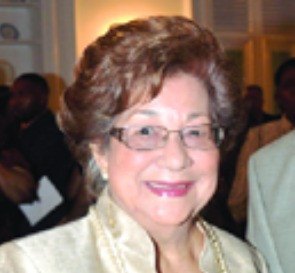
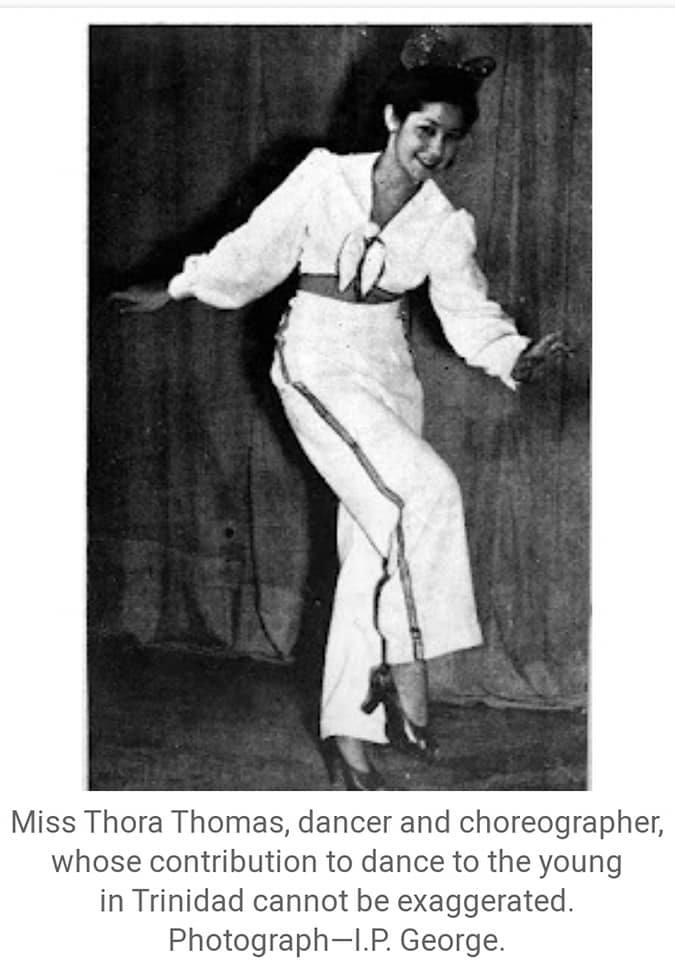

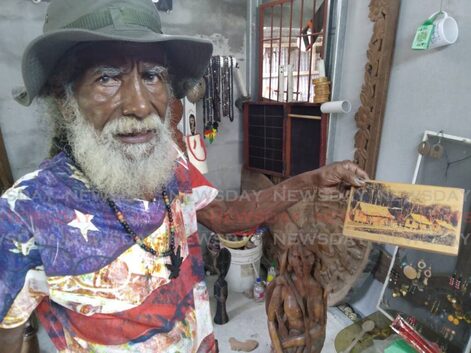
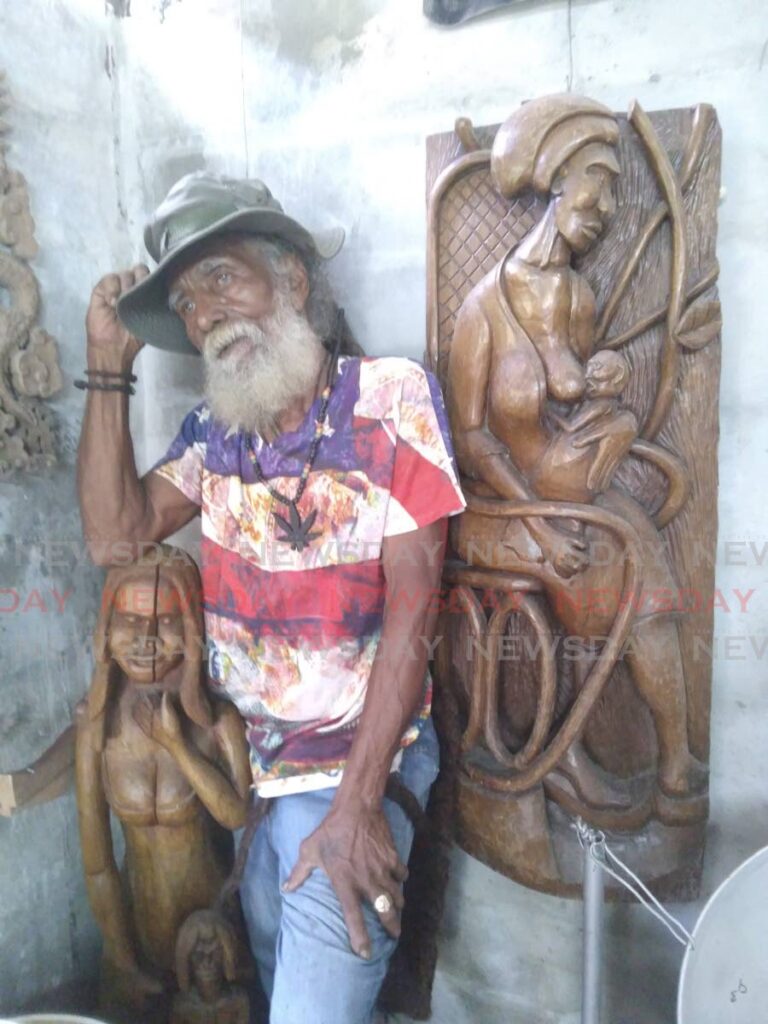
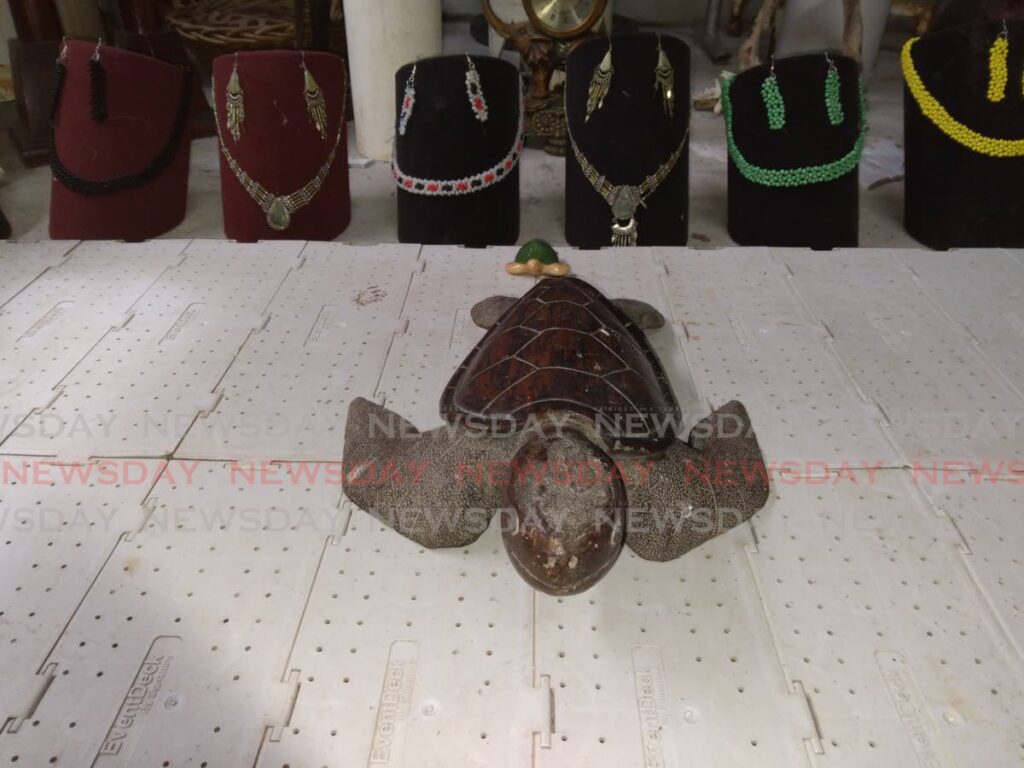
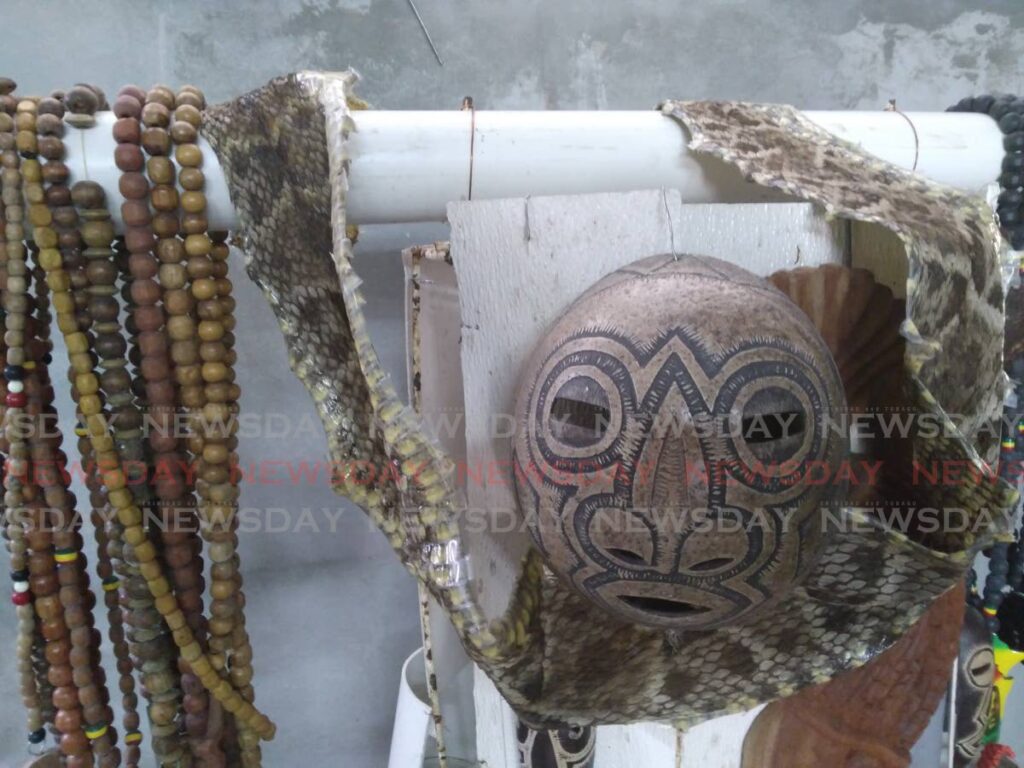
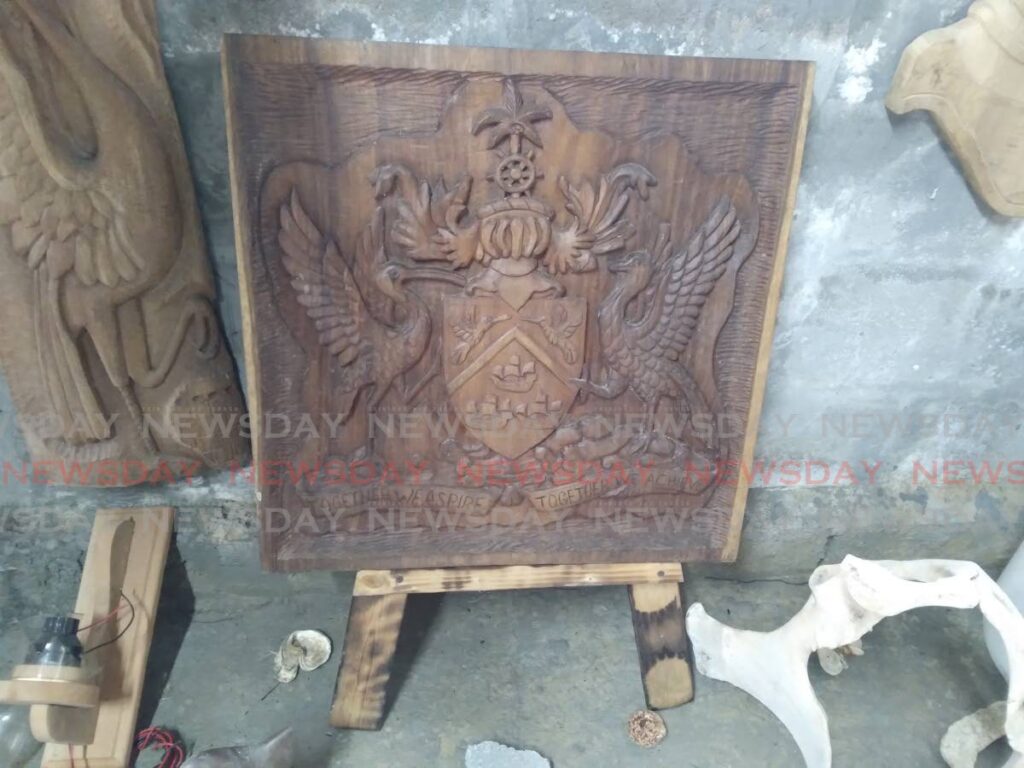
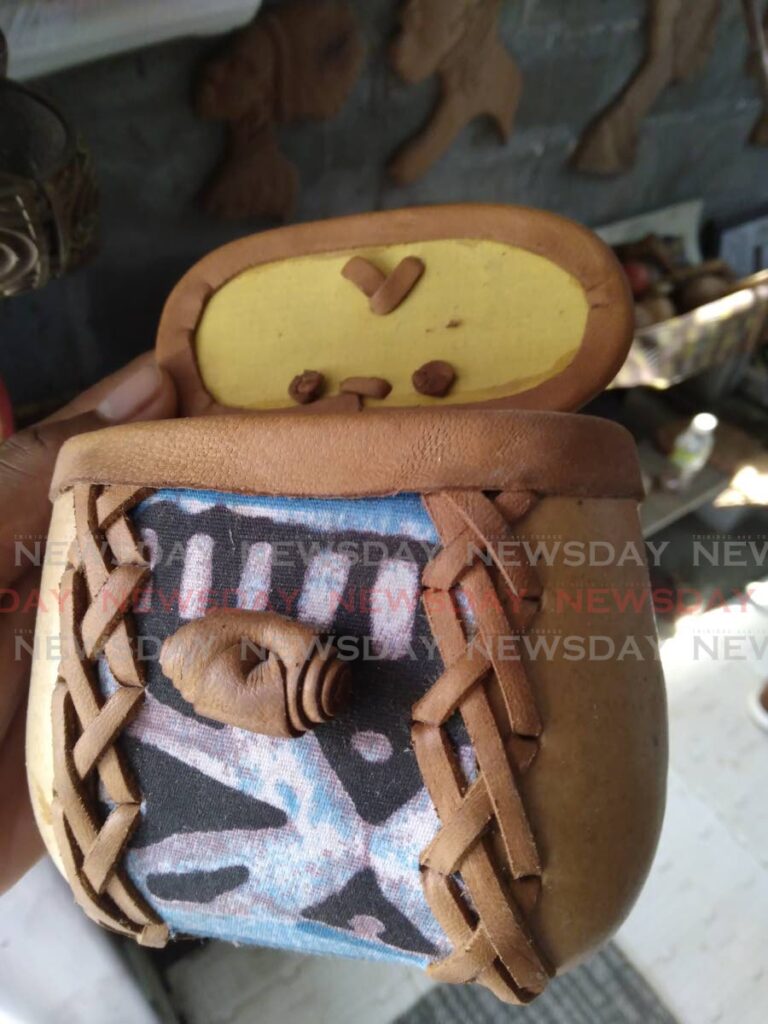
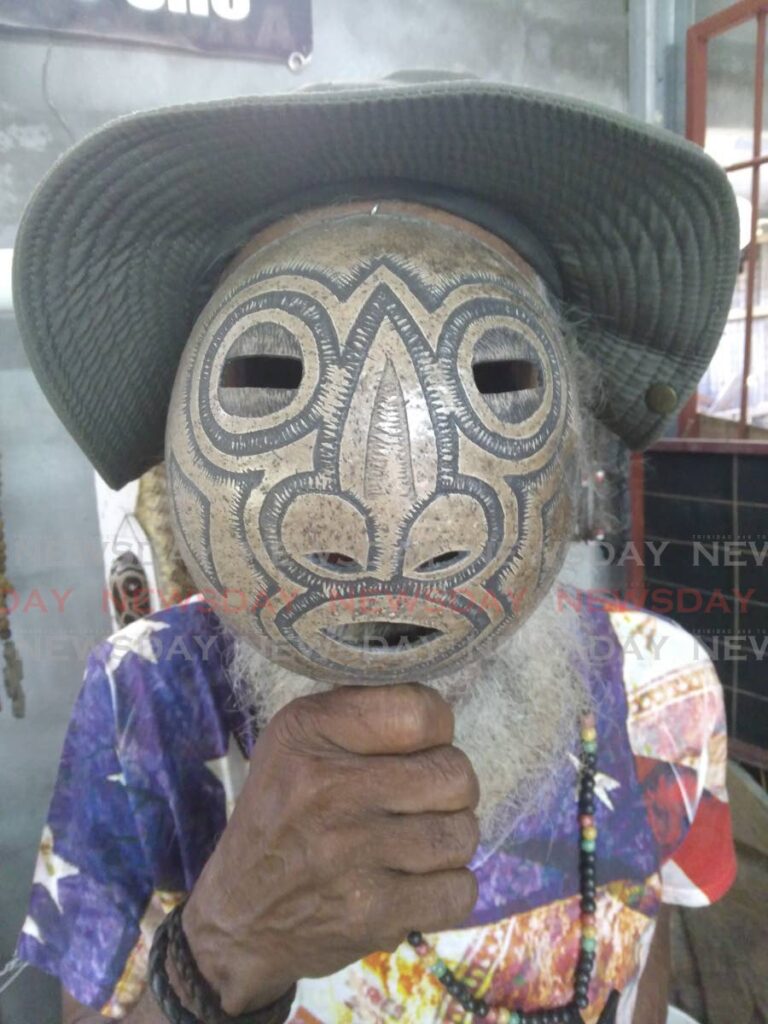
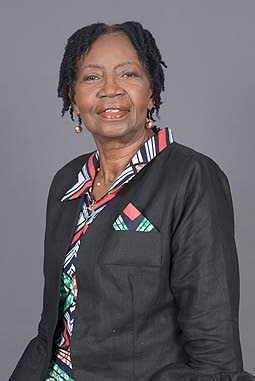



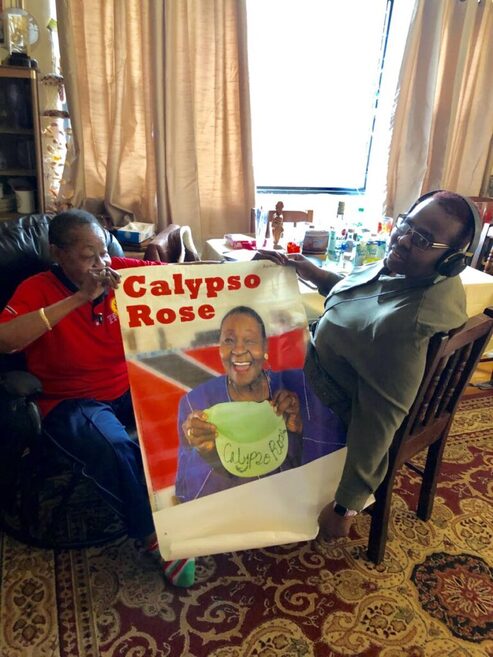
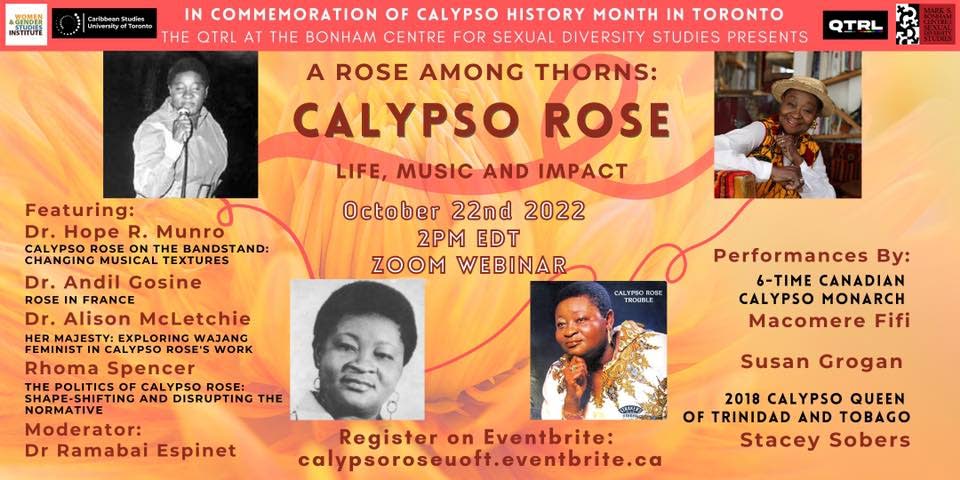

 RSS Feed
RSS Feed